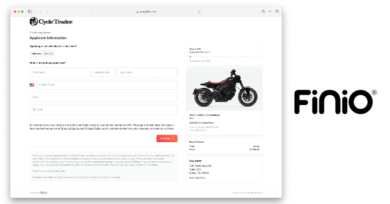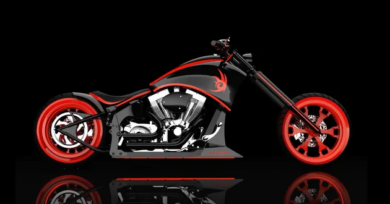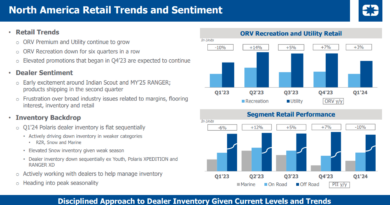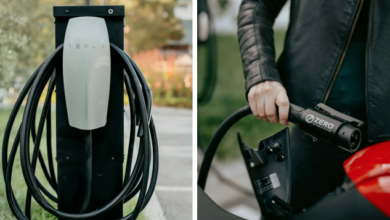The Trouble With Money
The vice president of sales of a New York-based sports apparel company once said that he knew exactly what inspired his employees to exceed expectations – cash. He knew this because he asked them. He didn’t want to hear about motivating with travel or merchandise. “Cash is easy. They do what I want and I give them the money they want.”
A car dealer in Southern California told me much the same thing. “You’d be surprised how many cars I can sell by just offering salespeople $50 extra per car!” I’m sure that both of these businessmen were telling me the truth – as they saw it. They were convinced by what their salespeople said would motivate them. But the fact is, many salespeople don’t realize themselves what truly pushes them to dig deeper and push harder.
Moreover, what salespeople want and what is most effective and cost-efficient for the company is not always the same. Just as it would be illogical to let employees set salaries that they deem sufficiently motivating, it’s unreasonable to give them carte blanche to determine how top performance is rewarded.
Businesses exist to generate profits, yet not every employee contributes equally to that objective. In a recent survey by Mercer Human Resource Consulting, workers on average said they could do 26 percent more work. Clearly, most companies are failing to capture their potential for achieving greater employee productivity.
Cheaper Thrills
What does this have to do with using cash as a motivator? Simply put, cash is not the best way to get people to reach and exceed their potential. Research and experience has shown that merchandise and travel are more powerful motivators. What’s more, even those companies that use cash incentives say these rewards are remembered by recipients for the shortest amount of time.
Sixty-one percent of incentive program sponsors who responded to a 2003 survey by the Incentive Federation agree that they can build more exciting and memorable programs using travel than rewarding with cash. Forty-eight percent state they can build more exciting and memorable programs around merchandise than cash.
Cash Loses Its Allure
Of course, any discussion on the motivational power of merchandise and travel assumes that there is a competitive compensation plan in place. Let’s face it, incentives won’t get any salesperson to consistently meet or beat goals if compensation is inadequate.
Most salespeople will say they want cash if offered a choice of incentives. “If you give me cash,” they reason, “I can do whatever I want with it.” The problem is that cash ultimately isn’t the motivating force that salespeople purport it to be – particularly when dealing with those who earn significant salaries and commissions. The end result: programs using cash incentives frequently fail to achieve their overall objectives.
Cash also is the most expensive incentive a company can use. When a company gives an employee a dollar as a reward, it first has to reduce it by withholding income tax. That immediately lessens the value of that dollar to the recipient. A dollar spent on travel or merchandise almost always carries the perception of having greater value to the person receiving it.
There also are derivative benefits to an incentive program that are adversely affected by cash. Generally, winners are recognized and awarded publicly in order to inspire non-winners to try harder next time. Income, however, is typically treated as a private matter. Employees are loath to share anything about their income, nor do they want management to share news of a financial bonus. With cash awards, a company loses the P.R. benefit, and winners sacrifice the satisfaction that comes from public recognition.
Dollars Disappear
A cash reward tends to disappear into a black hole also known as the home budget. It loses the uniqueness that sponsoring companies want it to have.
Ask the average person what they did with last year’s bonus and they will be hard-pressed to answer. Ask about the incentive trip they earned, and they’ll talk at length about the memories. (They may even show you home video shot with a camcorder that they were awarded with for hitting the previous year’s sales numbers.)
Perhaps the best reason for avoiding cash as an incentive is that it becomes confused with a salesperson’s compensation. If a company opts to cut costs by eliminating an incentive program (not a
smart idea, but that’s another article), it’s easy enough to do when using travel and merchandise programs. But eliminating an established cash reward system will be received as a reduction in salary. Just ask the Wall Street brokers who have seen their bonuses drop drastically if not disappear altogether in the past few years.
Finally, cash rewards lack the emotional advantage of merchandise and travel. A salesman working toward a trip to Mazatlan or a big-screen TV envisions himself walking on the beach or watching the big game at home, then repeatedly uses that image as inspiration. Cash evokes no emotional imaging, and where there is no emotional involvement, there can be little motivational impact.
When it comes to cash as an incentive, your salespeople may say they love it, but you’d be wise to leave it.
Bob Vitagliano served as executive vice president and CEO of the Society of Incentive &Travel Executives (SITE) from 1993 through 1999, conducting business in 63 cities in 30 countries. He currently is president of V Associates, LLC, an incentive marketing consultancy in Wilmington, N.C. He can be reached at vassociates@ec.rr.com.








